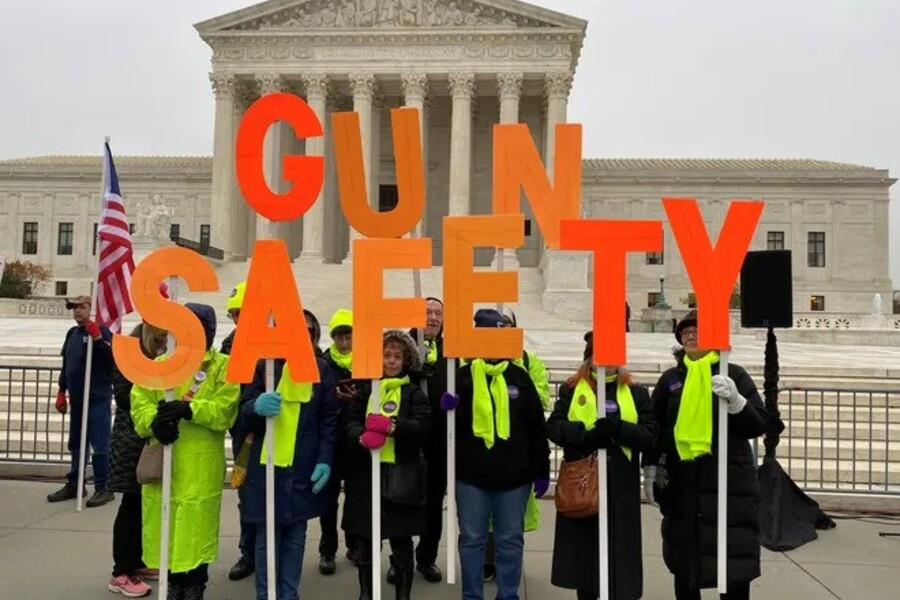The Trump administration is urging the U.S. Supreme Court to make clear that people who are “unlawful users” of controlled substances—such as regular marijuana users under federal law—may not possess firearms, even when they are sober. In a new petition arising from a Texas case, Justice Department lawyers argue that a recent 5th Circuit ruling wrongly limits the federal gun ban to moments when a person is actively intoxicated, a reading they say would “gut” a statute enforced daily in courts across the country.
Why this matters
At issue is 18 U.S.C. § 922(g)(3), which bars gun possession by anyone who “is an unlawful user of or addicted to” a controlled substance. After the Supreme Court’s Bruen decision (2022) required modern gun restrictions to fit within the nation’s historical tradition, lower courts have split on how § 922(g)(3) can be applied—especially to cannabis users in states where marijuana is legal under state, but not federal, law. The administration says history supports temporarily disarming habitual drug users due to the foreseeable risk of misuse, not just when they are high.
What the appeals court said
In January, the New Orleans-based 5th U.S. Circuit Court of Appeals affirmed dismissal of the indictment against Ali Danial Hemani, concluding—consistent with its earlier Connelly and Daniels decisions—that the government cannot apply § 922(g)(3) unless it proves the defendant was under an “impairing influence” while possessing the gun. The panel described history as supporting some limits on presently intoxicated people, but not disarming a sober person solely for past or general drug use.
What the government argues
The Solicitor General’s petition asks the justices to take the Hemani case and reverse, contending that founding-era and later laws allowed temporary disarmament of groups who pose a “clear danger of misusing firearms,” and that legislatures have, “for about as long as they have regulated drugs,” prohibited arms possession by drug users and addicts—not only by those currently under the influence. The brief also emphasizes that § 922(g)(3) targets habitual or regular users and operates only so long as that use continues.
The government further notes practical stakes: since the federal background-check system began in 1998, the drug-user prohibition has accounted for more denied gun sales than any bar except the bans on felons and fugitives, and prosecutors bring § 922(g)(3) cases nationwide “daily.”
The case behind the appeal
Hemani—a U.S.–Pakistan dual citizen—was charged in 2023 after agents found a Glock 19 in his Texas home. DOJ says evidence showed he used marijuana “about every other day,” and alleges other drug involvement; defense lawyers say the government is trying to “inflame” the record and stress that the case never claimed he was high when agents seized the gun. A district judge dismissed the indictment as unconstitutional as applied, and the 5th Circuit summarily affirmed after Connelly.
Where other courts are landing
- Seventh Circuit (pre-Bruen but relied on history): upheld § 922(g)(3) in general.
- Eighth Circuit (2025): has required individualized, case-by-case assessments to justify the disarmament of drug users.
- Fifth Circuit (2024–25): demands proof the person was intoxicated at the time of gun possession (with narrow caveats).
These divergent approaches are among the reasons DOJ says Supreme Court review is warranted.
A notable policy backdrop: rights restoration
Addressing “marginal” cases, DOJ points to a newly revived federal pathway for restoring gun rights: in March 2025, the Attorney General withdrew a long-standing delegation to ATF and reopened relief under 18 U.S.C. § 925(c), allowing applicants to seek case-by-case restoration, with judicial review if denied. (Congress had effectively frozen the program for decades by defunding ATF action.)
How often is this law used? One high-profile example
The drug-user ban features in hundreds of prosecutions annually; in 2024, Hunter Biden was convicted under § 922(g)(3) for lying on a gun form amid addiction, before President Joe Biden issued a sweeping pardon later that year, and a judge dismissed the case.
Reader questions, answered
Can you own a gun if you use marijuana?
Under federal law, regularly using marijuana still makes you an “unlawful user” regardless of state legalization, exposing you to the § 922(g)(3) ban and potential prosecution. The 5th Circuit’s narrower view currently protects only within its jurisdiction and only where the government cannot show intoxication at the time of possession—but DOJ is asking the Supreme Court to reject that approach.
Why is the Supreme Court likely to get involved?
The government is asking the Court to resolve a live conflict over how Bruen applies to drug-user prohibitions; lower courts have limited or questioned § 922(g)(3) in different ways, and the 5th Circuit has now invalidated the law’s application in multiple cases. The Hemani docket (No. 24-1234) is fully briefed on whether to grant review, with a decision on taking the case possible as early as the Court’s fall calendar.
How does this fit with other recent gun rulings?
In March 2025, the Supreme Court upheld the Biden-era rule regulating “ghost guns,” a separate case about whether parts kits can be treated as firearms under the Gun Control Act—illustrating that not all firearm regulations fail under Bruen.
What’s next
The justices could announce as soon as this fall whether they will hear United States v. Hemani. If they take the case, a ruling would clarify whether habitual drug use—without proof of contemporaneous intoxication—can constitutionally trigger a categorical, but temporary, ban on gun possession. Until then, the federal prohibition remains on the books nationwide, with differing enforcement outcomes depending on jurisdiction.

